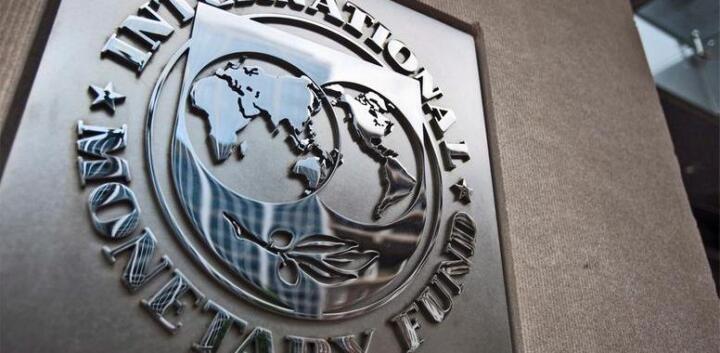The International Monetary Fund (IMF) has expressed concerns over Nigeria’s debt servicing burden, noting its significant impact on the country’s socioeconomic development. In a recent report, the IMF highlighted that Nigeria’s growing debt obligations are diverting funds away from critical development areas such as infrastructure, education, healthcare, and economic diversification.
Debt Burden and Fiscal Constraints
With Nigeria’s debt servicing costs representing a substantial portion of its annual budget, the IMF emphasized that these expenditures are increasingly crowding out essential government spending. Nigeria’s debt service-to-revenue ratio remains alarmingly high, with a significant percentage of government income directed toward meeting debt obligations. This trend leaves limited fiscal space for necessary investments that could stimulate economic growth and improve the quality of life for millions of Nigerians.

In recent years, Nigeria has relied on domestic and international borrowing to fund various developmental projects, address fiscal deficits, and stabilize its economy amid fluctuating oil revenues. However, as debt levels rise, so do the costs associated with servicing these obligations, creating a cycle of dependency and limiting the government’s ability to fund transformative projects.
### Impact on Key Sectors
The IMF report underlined the effect of debt servicing on several critical sectors essential for long-term socioeconomic development:
1. **Infrastructure**: Nigeria faces a considerable infrastructure gap, with significant needs in power, transportation, and digital connectivity. Yet, heavy debt servicing limits available funds for infrastructure projects, stalling efforts to modernize and expand these vital sectors. Without improvements, Nigeria’s competitiveness and productivity remain hampered, affecting both domestic business operations and foreign investment attractiveness.
2. **Healthcare**: The health sector continues to experience chronic underfunding, which has led to inadequate healthcare facilities, insufficient medical supplies, and a shortage of healthcare workers. High debt servicing costs strain public health budgets, preventing comprehensive investments needed to improve healthcare delivery across Nigeria.
3. **Education**: Debt obligations also limit funds available for education, an area crucial to human capital development and long-term economic growth. Under-resourced educational institutions, outdated curricula, and a shortage of qualified teachers are among the pressing issues that have yet to be addressed adequately, exacerbating the skills gap in Nigeria’s workforce.
4. **Economic Diversification**: Reducing Nigeria’s reliance on oil revenues requires significant investment in sectors such as agriculture, manufacturing, and technology. However, debt servicing obligations hinder efforts to channel resources into these alternative economic areas, which could provide more stability and resilience in the face of oil price volatility.
### The IMF’s Recommendations
The IMF has urged Nigeria to adopt a multi-faceted approach to address its debt-related challenges. Among its key recommendations are:
– **Improved Revenue Generation**: The IMF recommends that Nigeria intensify its revenue collection efforts, particularly through broadening the tax base and improving tax compliance. A focus on domestic revenue generation could reduce Nigeria’s reliance on debt and create a more sustainable fiscal framework.
– **Debt Restructuring**: Exploring debt restructuring options with creditors may provide Nigeria with some fiscal relief. By negotiating longer repayment periods or reduced interest rates, Nigeria could potentially free up resources to allocate toward socioeconomic development.
– **Prioritizing Expenditure**: The IMF advises a more targeted approach to spending, ensuring that available resources are directed toward high-impact areas that foster economic growth. By prioritizing expenditures, Nigeria can make more effective use of its limited fiscal space.
– **Strengthening Public Financial Management**: Enhancing transparency and accountability in public finance management is critical. By reducing waste, inefficiency, and corruption, Nigeria can maximize the effectiveness of its expenditures and improve public trust in government spending initiatives.
### Government Efforts and Strategic Initiatives
The Nigerian government has taken steps to address its fiscal challenges, including initiatives aimed at expanding non-oil revenue sources and enhancing economic diversification. Programs in agriculture, digital economy development, and financial inclusion are part of broader efforts to stimulate economic activity beyond the oil sector.
Additionally, Nigeria has sought financial assistance and development loans from multilateral institutions like the World Bank to fund specific projects in energy, transportation, and education. However, these loans also contribute to the country’s debt profile, underscoring the importance of prudent borrowing and effective project implementation to ensure long-term benefits.
### The Path Forward
Nigeria’s struggle with debt servicing underscores the broader challenges facing the country’s economy, which has been impacted by fluctuating global oil prices, inflation, and a growing population. For the country to achieve sustainable growth, economic policies must focus on creating a more resilient and diversified economy that can generate revenue independently of the oil sector.
Experts argue that stronger governance, policy continuity, and a commitment to structural reforms are vital for Nigeria to realize its economic potential. By addressing its debt burden in a strategic manner, the Nigerian government can better position itself to invest in areas that directly improve citizens’ quality of life, reduce poverty, and drive sustainable development.
Conclusion
Nigeria’s debt servicing commitments have become a major impediment to the nation’s socioeconomic progress. The IMF’s call for strategic reforms highlights the need for a comprehensive approach that balances debt obligations with the country’s development needs. As Nigeria navigates these challenges, it must adopt sustainable fiscal practices that prioritize economic diversification and revenue growth. Addressing these issues effectively will be essential to building a stable and prosperous future for the nation.
Support InfoStride News' Credible Journalism: Only credible journalism can guarantee a fair, accountable and transparent society, including democracy and government. It involves a lot of efforts and money. We need your support. Click here to Donate
